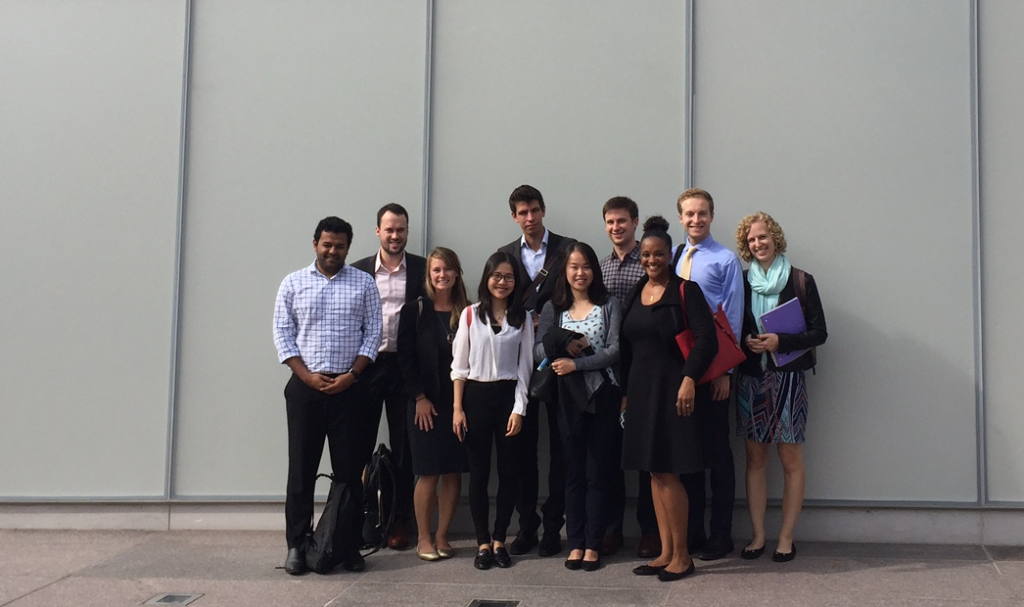Master’s Programs

Master’s of Science in Environment and International Affairs – Launching in Fall 2024!
Addressing the global environmental crisis requires interdisciplinary training at the intersection of environmental science and international affairs to bridge the gap between scientific knowledge and policy expertise. Georgetown University, with its academic strengths, resources, and strategic location, presents the Master of Science in Environment and International Affairs (MS-EIA) program to provide a comprehensive, interdisciplinary education in this growing field.
Georgetown University’s Master of Science in Environment and International Affairs (MS-EIA) from the Walsh School of Foreign Service and Georgetown’s Earth Commons Institute is designed for ambitious students seeking to combine interdisciplinary expertise, practical skills and access to influential institutions in the nation’s capital. Whether you aspire to shape global environmental policy, promote transnational collaboration or secure a rewarding position in the dynamic fields of environmental studies and international affairs, our program offers a unique approach to help you stand out in a competitive and growing field. Based on Georgetown’s historic Washington, DC, campus, the program harnesses the university’s academic strengths, resources, ethical framework and strategic DC location to help you serve the common good.
Check out the website for more information & to apply now !
New! Graduate Certificate In Global Heath Diplomacy (H-DIP)
The Institute for the Study of Diplomacy, in conjunction with the Science, Technology and International Affairs Program, offers a Graduate Certificate in Global Health Diplomacy, designed to prepare students to work in a variety of environments, engaging in multilateral, bilateral, formal and informal efforts to advance health and foreign policy. The certificate will work with students from all SFS graduate programs and disciplinary studies to fill gaps in knowledge and provide the training necessary to operate effectively in the health diplomacy space.
Master’s of Science in Foreign Service, Concentration in STIA
In the spring of 2021 we launched a new STIA master’s track in partnership with the MSFS program. Students in the STIA concentration select to focus on one of three subfields:
- Energy and the Global Environment (EGE): Explores key international challenges at the intersection of energy and the environment including global climate change, transboundary resource challenges, food, water and agriculture, and the sustainable energy transition. This subfield places a particular emphasis on global commons and natural resources.
- Innovation and Emerging Technologies (IET): Explores transformative technologies from biotechnology to artificial intelligence, as well as the technological innovation process. This subfield places a particular emphasis on the role of the market and the state’s efforts to shape it.
- Science, Technology and International Strategy (STIS): Explores role of technology in national strategy including the science and technology issues behind space cooperation and competition; nonproliferation, arms control and disarmament initiatives; cyber security and artificial intelligence in diplomacy, development and interstate competition. This subfield places a particular emphasis on science and technology as instruments of power and tools of diplomacy for state and non-state actors.
For more information on admission to the MSFS-STIA program please refer to the MSFS website or contact the MSFS admissions team at msfsinfo@georgetown.edu.
Other Master’s Programs at Georgetown
Students currently enrolled in master’s programs across Georgetown are often able to take courses taught by STIA faculty. Our faculty teach in multiple programs including the Master of Science in Foreign Service; The Master of Arts in Asian Studies; the Master of Arts in Communications, Culture and Technology; the Master of Science in Global Infectious Disease; and the Master in Public Policy.